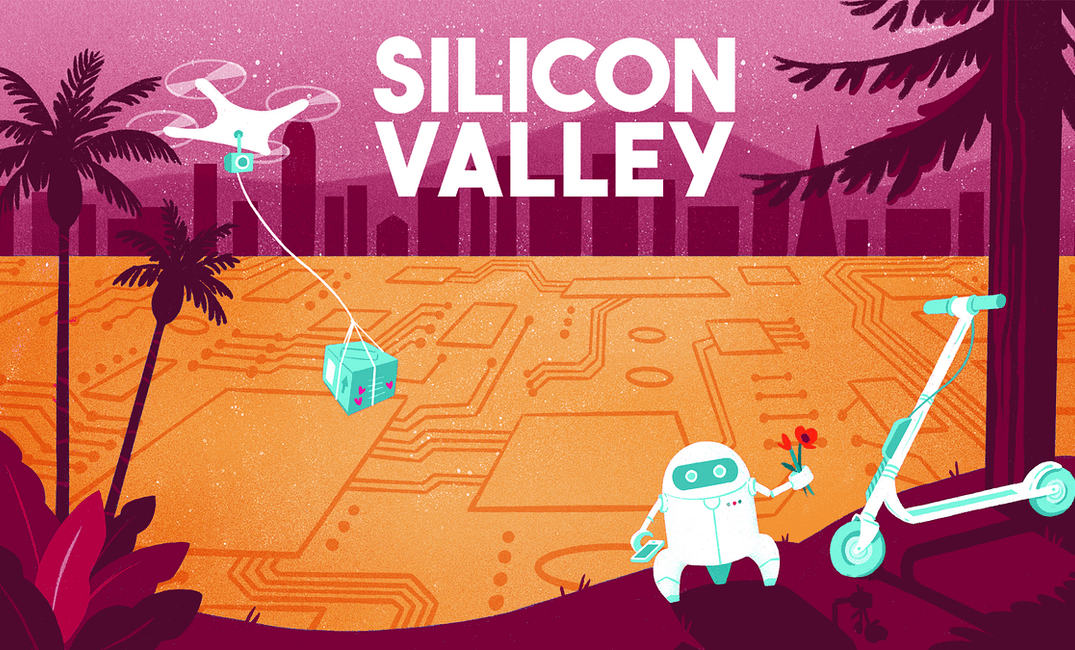The Weirdest Shit to Come Out of Silicon Valley
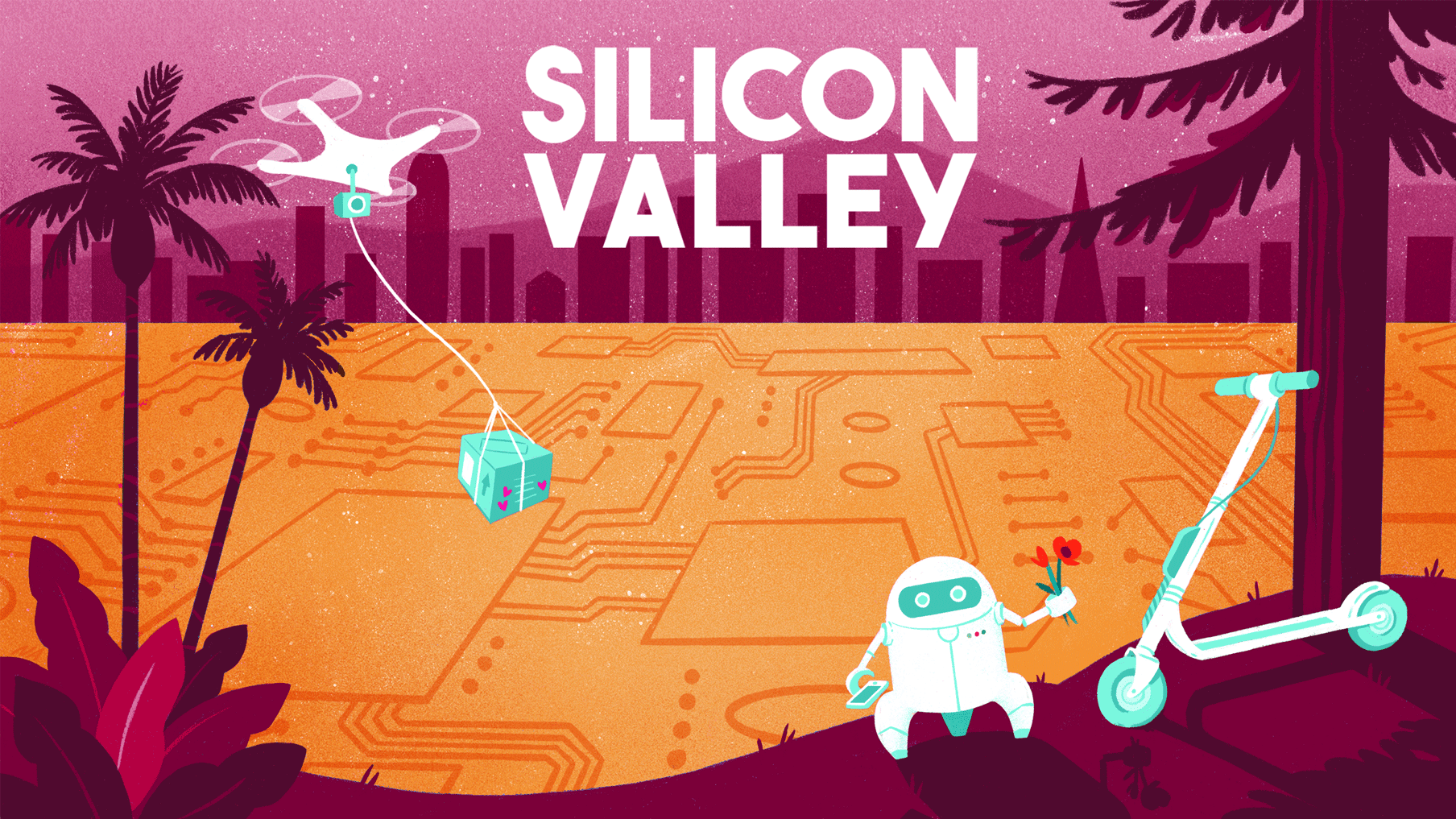
It’s been an interesting decade for technology. So much now exists that would have seemed like the stuff of science fiction in the 2000s — self-driving cars, lab-grown meat, AI journalists, consumer virtual-reality headsets, Twitch, cryptocurrency. We’ve all grown a lot as a people technologically and culturally. In 2016, the term “influencer” officially entered the dictionary, and life as we know it irrevocably changed.
We all know about the major startup f**k-ups: the first Google Glasses (highly touted but an absolute flop); Juicero, the $700 juicer that could be out-juiced by human hands; and Theranos’ bloody garbage fire.
This month’s column looks at some of the most bizarre stuff from lesser-known startups from the past decade that made its way out of a techie’s micro-dosed, world-conquering imagination and into actual production, albeit briefly.
And now our regular quiz: Two Truths and a Lie, the Silicon Valley Startup Edition. Out of the following three startups from the past decade, which one is fake? One that releases fragrance per email received? One that uses facial recognition to find pets? One that microchips your children to keep track of them? (Scroll to the bottom for the answers.)
Now without further ado, here’s the most head-turning tech to come out of Silicon Valley during the past decade.
Ambrosia, the blood-transfusion startup

Ambrosia set out to change the way we age. For the company, that meant siphoning off that rich red stuff flowing through the veins of 16-to-25-year-olds and uploading—ahem, transfusing—it into the shriveled bodies of people 30–80 years old at a rate of $8,000 per liter (or for the real deal of $12,000 for two). It’s not completely cuckoo; at some point, this idea was based on a very small unpublished clinical trial run by a Stanford medical grad (not a licensed doctor) who found that fresh blood helped Alzheimer’s patients. The company was founded in 2016 but was shut down by the FDA this year. However, as it goes in Silicon Valley, the company popped up a few months later in San Francisco and Tampa, peddling the same stuff off-label.
The short-lived smart brush
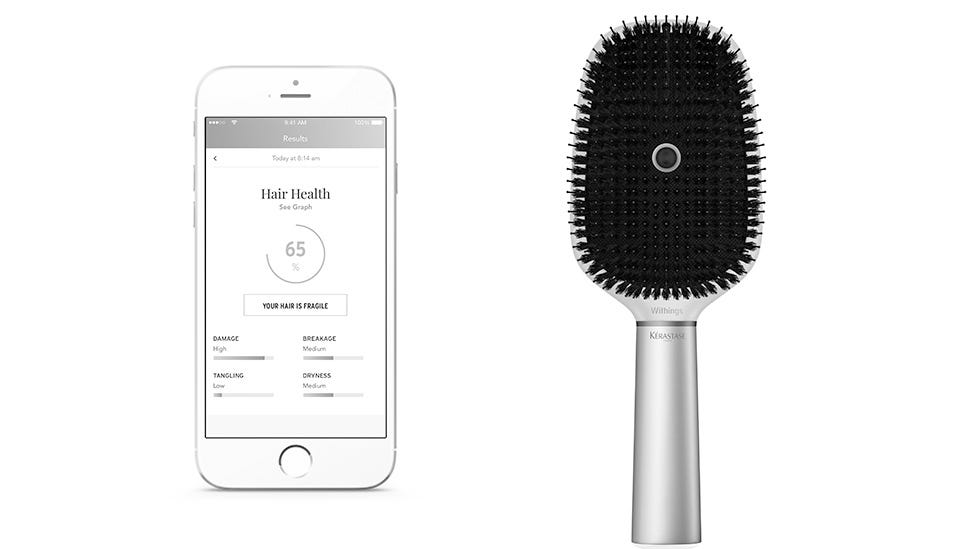
In 2017, L’Oréal’s posh hair brand, Kerastase, announced that they’d teamed up with Withings (then owned by Nokia) to create an app-connected smart hairbrush. They’d implanted a Nokia microphone into the brush so it could “listen to your hair” during brushes and impart advice, such as “Not so hard” or “Brush from top to bottom” — at least, that’s what I’d assume it would say. It was equipped with an accelerometer and a gyroscope that would vibrate if you’re brushing too harshly, and it set you back $199.
The smart brush was panned so hard by the press that I couldn’t find a single reference to it that year — no sales, nada. A sad end to what was likely a million-dollar investment in product development.
A (literally) blinding light-therapy acne mask
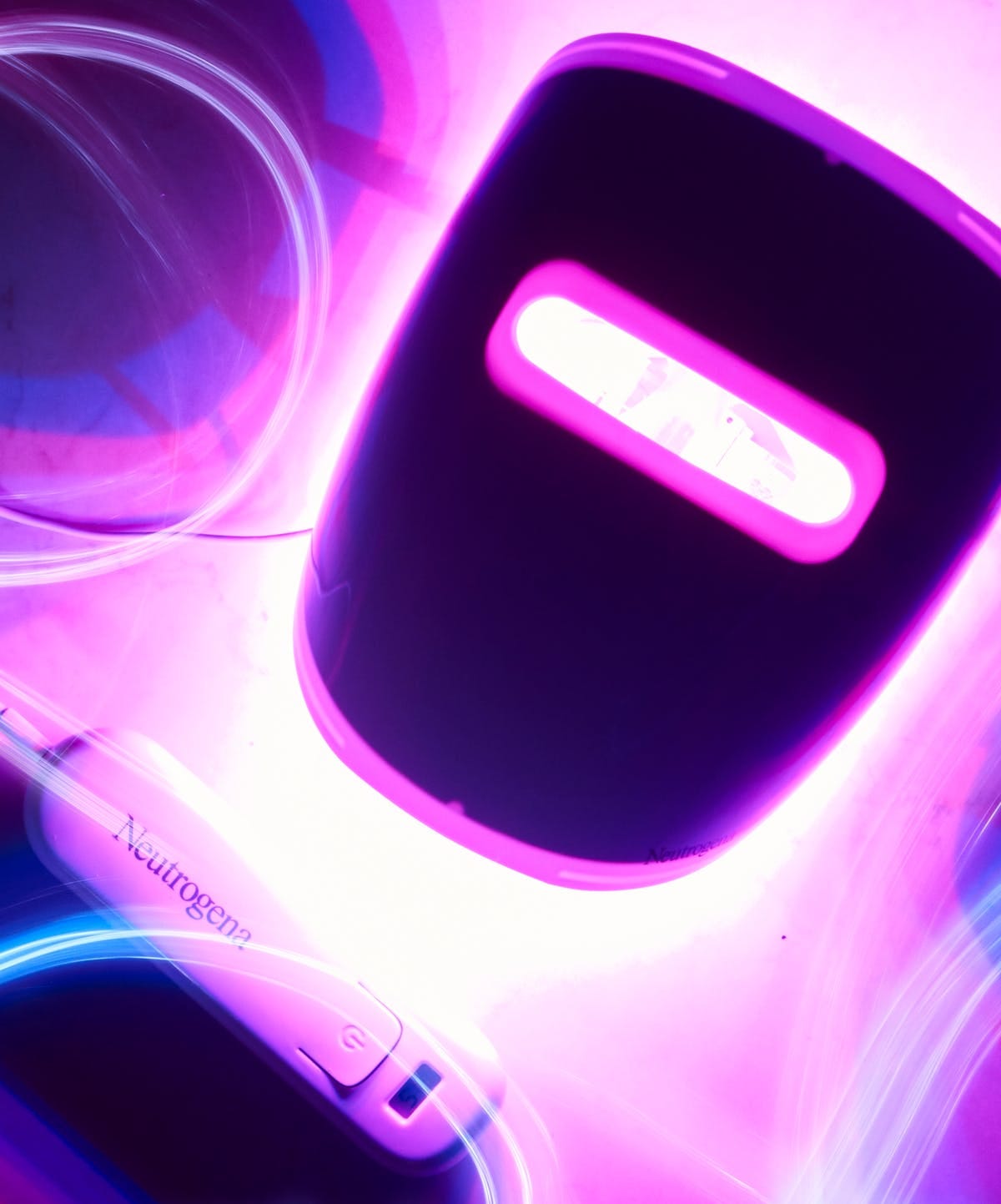
Like most of the world, I hate having bad-skin days. So this year I bought Neutrogena’s Light Therapy Acne Mask, released in 2016. It makes you look like an alien, but the red and blue light it shines is meant to have some anti-inflammatory properties (though nowhere near as powerful as an in-salon treatment).
Launched in 2016 for $39.99, it was incredibly popular in the beauty world — for its results and its selfie potential. It won awards. But in 2019, it was recalled due to the minor issue of potentially causing blindness in users — “a small subset of the population with certain underlying eye conditions, as well as for users taking medications, which can enhance ocular photosensitivity,” they said. Yowch. Not cool, Neutrogena. Not cool at all.
Employees get microchipped
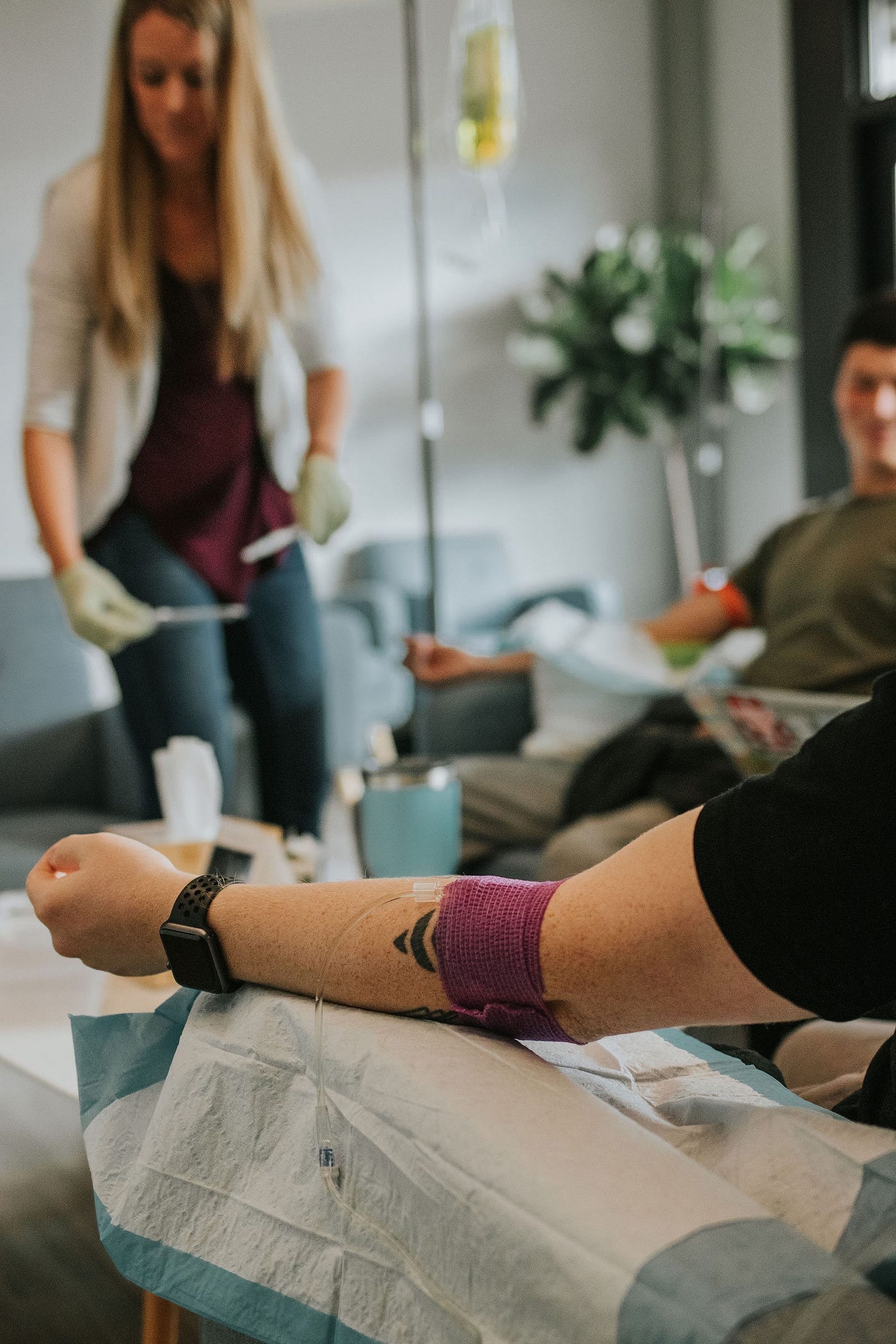
Microchipping dogs — and arguably, children — has to do with making sure your loved ones are safe and that you can find them if they go missing. Microchipping employees… well, that just means you don’t want them to have super-long bathroom breaks, right? In 2015, Epicenter, an incubator in Sweden, started microchipping employees at its 300-some startups — not for bathroom breaks, they said, but so that they could have printer access, key-free entrances, and wireless payments. They bring in specialist companies to perform the surgery, and it can be done during lunch or at evening events.
I mean, I hate having to figure things out every time I start a new job, but this is a little extreme, no? Currently, ongoing.
A subscription for quarters

If your place doesn’t have an in-unit washer-dryer, one of the biggest annoyances is getting enough quarters to start those machines. Don’t worry, though — Silicon Valley saw the opportunity. In 2014, Washboard, a subscription quarter service, entered the world. For a $26.99 fee, you’d get $20 in jingly quarters — 80 coins total. Unsurprisingly, the company didn’t get many sign-ups and shuttered pretty soon after launch. “Nearly 100% of the internet thought Washboard was an absolutely absurd concept.I had a very difficult time convincing people the service was even real,” Caleb Brown, the founder, wrote on the company’swebsite.“But we did have customers that were excited about it.”
Just Hampton Creek and the start of the “What’s milk/mayo/meat?” controversy

You can’t make a cake without breaking any eggs, and while no actual eggs were harmed in the creation of Just (formerly known as Hampton Creek), a plant-based food company, a shakeup did happen. Their first product was Beyond Eggs, followed by Just Mayo, a vegan mayo. This came with a bunch of lawsuits from the big egg brands arguing that vegan mayo wasn’t “mayo” at all and couldn’t be labeled as such. Semantics, sure, but a billion-dollar opportunity. Just won, and the plant-based world changed forever. But things got murky in this new food space when it leaked that some of their great sales — of the brand flying off the shelves — were due to employees being sent out to purchase it. Yeesh. Just a small taste of how controversial the plant-based food space was going to be; in 2018, Missouri banned vegan meat from calling itself meat, and dairy companies have tried to ban alt-milk companies from calling themselves “milk.”
2010: Intellitar, for virtual immortality
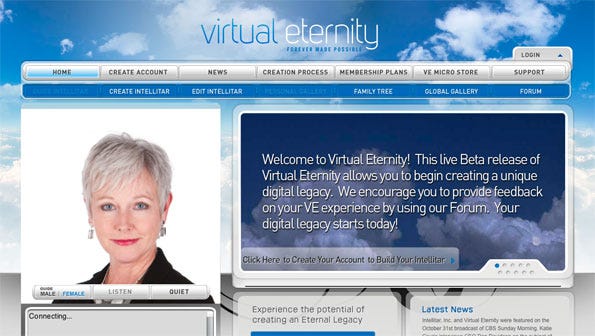
Everyone hates the idea of dying and being forgotten, and startup Intellitar capitalized on this fear with their subscription immortality startup, launched in 2010. For $25 a month, users could upload voice samples, photos, and thoughts, and an AI algorithm would create smart avatars of them that could communicate with their descendants. To create their avatar, users took the Myers-Briggs type personality test and were assigned to an avatar that could be personalized. For an extra $100, the avatar was programmed to re-create your voice.
This lasted two years, so no one got to test out what this would look like in reality.
Answers to Two Truths and a Lie, the Silicon Valley Startup Edition: These are all real startups — psych! The startup iSmell launched in 1999, raising $20 million to make internet-connected scents before going out of business. The startup Finding Rover, launched in 2012, uses facial recognition to find lost cats and dogs. And in 2003, the VeriKid program placed RFID chips in Mexican schoolkids to help fight child abduction.
Know of some ridiculous stuff that’s happening in the startup world in 2020? Email, tweet me, or DM me to include it in next month’s edition.



